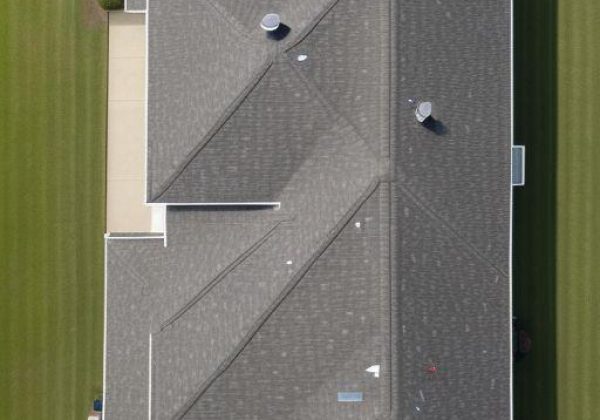What Is The Difference Between A Contractor And A Roofer?
Introduction
Navigating the world of home improvement can be daunting, especially when it involves roofing projects. Homeowners often find themselves wondering who to hire for their roofing needs: a contractor or a roofer? These terms are sometimes used interchangeably, but they represent distinct roles within the construction industry. Understanding these differences is essential for making informed decisions about your home.
In this comprehensive article, we will delve into the nuances between contractors and roofers, addressing common questions and concerns. We’ll explore everything from qualifications to responsibilities, ensuring you’re equipped with the knowledge necessary for your next roofing project. If you're searching for a “roofing contractor near me,” this guide will help clarify who you should reach out to.
What Is The Difference Between A Contractor And A Roofer?
To start off, let’s define who each professional is in the context of home improvement.
Understanding the Role of a Contractor
A contractor is typically a generalist who oversees various aspects of a construction or renovation project. Their responsibilities might include:

- Project Management: Coordinating different tradespeople (like electricians and plumbers) to ensure that every part of the project runs smoothly.
- Budget Oversight: Managing finances and ensuring that costs stay within budget.
- Permitting: Handling all necessary permits and inspections required by local regulations.
Contractors can work on various projects ranging from building homes to remodeling kitchens and bathrooms. They may not specialize in any particular trade but have a broad understanding of construction processes.
Defining the Role of a Roofer
A roofer, on the other hand, specializes in installing, repairing, and maintaining roofs. Their expertise includes:
- Roof Installation: Whether it's asphalt shingles, metal roofing, or tiles, roofers are trained to install various types of roofing systems.
- Repairs: Fixing leaks and damaged areas on existing roofs.
- Maintenance: Regular inspections and upkeep to prolong the life of a roof.
Roofers are skilled tradespeople who focus specifically on roofing materials and techniques.
Key Differences Summarized
Here's a quick comparison to illustrate the differences:
| Feature | Contractor | Roofer | |-----------------------|--------------------------------------------|---------------------------------------------| | Specialization | General construction | Specializes in roofing | | Scope of Work | Manages entire projects | Focuses solely on roofs | | Licensing Requirements | Varies by state | Usually requires specific licensing | | Skills | Broad construction knowledge | Expertise in roofing materials |
Why It Matters: Choosing the Right Professional
When embarking on any home improvement project—especially one as crucial as roofing—choosing the right professional can significantly impact both quality and cost.
Common Misconceptions About Contractors and Roofers
- While many contractors may have roofers on their teams or subcontract roof work, not all have specialized training in roofing systems.
- Roofers are experts in their field but may lack experience in other construction areas such as plumbing or electrical work.
- Sometimes hiring a specialized roofer directly can save costs since they won’t charge overhead fees associated with general contracting services.
Licensing and Certification: What You Need to Know
Understanding Licensing Requirements for Contractors
In most states, contractors must be licensed to operate legally. This usually involves passing examinations related to local building codes, business management practices, and safety regulations.
Importance of Hiring Licensed Contractors
- Ensures that they adhere to local laws.
- Provides some level of consumer protection.
Licensure for Roofers
Just like contractors, some states require roofers to obtain specific licenses depending on their scope of work. This varies widely by location:
- Some areas might not require any formal certification.
- Others may require proof of training in specific roofing techniques or materials.
How Licensing Protects You
Hiring licensed professionals helps protect your investment by ensuring competence and adherence to safety standards.
Experience Matters: Evaluating Qualifications
What Makes an Experienced Contractor?
When selecting a contractor for your project:
Evaluating Roofer Experience
For roofers:
Cost Considerations When Hiring Contractors vs Roofers
Understanding Pricing Models
Contractor Pricing
Contractors generally charge based on project scope with added labor costs:
- Flat fee contracts
- Hourly rates
- Cost-plus (where expenses plus profit margin are charged)
Roofer Pricing
Roofer pricing often depends upon material choices:
- Per square foot pricing
- Material markup
- Labor costs
Factors Influencing Costs
The Importance Of Insurance In Construction Projects
Contractor Insurance Requirements
It’s critical that contractors carry liability insurance along with worker’s compensation coverage:
Roofing Insurance Essentials
Roofers should also carry appropriate insurance coverage:
The Project Timeline: How Long Will It Take?
Typical Timelines For Contracting Projects
Construction projects vary greatly; however:


Roofer Timelines For Installing New Roofs or Repairs
For roofing jobs specifically:
Communication Styles: How Do They Differ?
Contractor Communication Approaches
Effective communication is fundamental when working with contractors:
Roofer Communication Practices
When dealing with roofers:
Quality Control Measures Implemented By Each Profession
Both contractors and roofers understand that quality assurance is paramount:
Contractor Quality Control Practices
General contractors may enforce multiple layers such as:
1.. Inspections conducted at various stages throughout construction, 2.. Utilizing trusted subcontractors who share similar standards.
Roofer Quality Assurance Protocols
For roof installation specifically:
1.. Routine checks during installation ensure proper methods, 2.. Final inspection ensures compliance with both manufacturer standards & local codes.
Safety Regulations That Apply To Each Field
Safety regulations differ based upon job type but still remain equally important across both professions:
Safety Standards For Contractors
Critical considerations include wearing personal protective equipment (PPE) & maintaining safe working environments through proper site management policies.
Safety Protocols For Roofing Professionals
Roofing involves unique hazards; therefore:
1.. Fall protection measures must be utilized at all times when working at heights, 2.. Training programs focusing specifically on ladder safety & harness usage should be mandatory.
What To Expect During An Estimate Appointment
Regardless if you choose between hiring either type professional there’ll likely be an estimate appointment involved; however there are subtle differences worth noting:
Estimate Process With Contractors
Expect discussions revolving around overall vision including budgetary constraints followed by detailed breakdowns outlining estimated timelines & material lists.
Estimate Process With Roofers
During estimates expect them focusing primarily upon specific aspects surrounding your roof itself; including current condition alongside proposed solutions moving forward (i.e repair vs replacement).
Click hereFAQs About Contractors vs Roofers
Here are some frequently asked questions concerning this topic:
Q1: Can I hire a roofer directly instead of going through a contractor?
Yes! If your project solely revolves around roofing then it’s perfectly acceptable hiring knowledgeable experienced skilled individuals without needing intermediaries involved!
Q2: Are all contractors capable enough handle my roofing needs?
Not necessarily! While many possess basic knowledge regarding roofs specialty lies within trained qualified individuals termed ‘roofers’ ensuring highest caliber workmanship available!
Q3: Which should I prioritize when searching online – ‘contractor’ vs ‘roofer’?
If focused primarily upon replacing/reparing your rooftop then searching ‘roofing contractor near me’ yields best results leading directly onto suitable candidates!
Q4 : How do I know whether someone qualifies as legitimate licensed professional ?
Always request copies verifying licenses along credentials prior engaging with any potential hires guaranteeing legitimacy!
Q5 : What kind warranties typically come along post-roof installations ?
Most reputable companies provide warranties covering labor/material defects lasting anywhere between five up twenty-five years respectively depending manufacturer specifications!
Q6 : What happens if unexpected issues arise during my renovation after starting work ?
Open communication remains key; discuss concerns immediately alongside discussing possible adjustments needed accommodating changing circumstances within budgets/timelines accordingly!
Conclusion
In conclusion navigating through complexities distinguishing between what constitutes ‘contractor’ versus ‘roofer’ ultimately enables homeowners make informed choices best suited towards fulfilling individual needs surrounding their respective properties! Understanding roles responsibilities ensures smooth collaborations paving way towards successful outcomes achieving desired results throughout every stage involved! Always remember whenever seeking assistance consider searching “roofing contractor near me” yielding localized options tailored towards fulfilling immediate requirements!